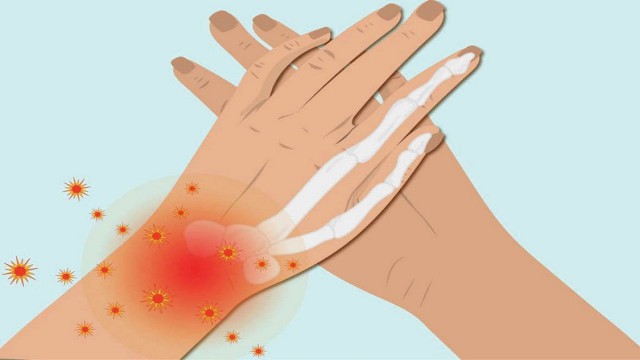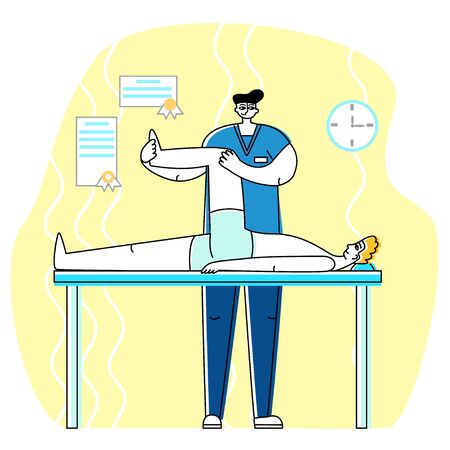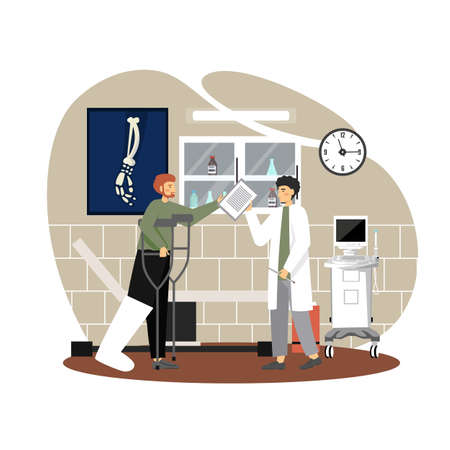Rheumatoid Arthritis' Buster - Biologics
Biologics are more effective in relieving the disease and stopping the damage to the joints.

Rheumatoid arthritis (RA) is known as the "undead cancer" because of its stubborn condition and long treatment time. The prevalence of RA is 0.5% to 1.0% worldwide, with a higher incidence in women than in men, and women aged 30-40 are the most vulnerable group. Patients will experience joint swelling, pressure pain and synovial joint destruction, leading to severe joint deformity and functional impairment, with a very high disability rate.
To date, rheumatoid arthritis cannot be cured and the main goal of treatment is to alleviate the condition. Treatment consists of conventional therapy with NSAIDs, traditional disease-modifying antirheumatic drugs and glucocorticoids, represented by methotrexate, leflunomide, elamod, and salbutamol. Traditional drugs still retain a certain "journeyman status" in treatment, but some side effects limit their application, and some patients have poor outcomes.
Rheumatoid arthritis "nemesis" - biological agents
With the emergence of biologics, rheumatoid arthritis can be considered a real "enemy".
Biologics are a class of drugs with a clear target, compared to traditional non-biological disease-modifying anti-rheumatic drugs, the biggest highlight is that they are not only more effective in relieving the disease, but also able to interrupt the destruction of the joints. Biologics have been a great boon to the treatment of patients with rheumatic immune diseases with their advantages of rapid onset of action, precise efficacy and safety.
Usually patients have obvious results in the first 2 injections. Its appearance has revolutionized the treatment of rheumatoid arthritis, especially for people with severe symptoms and obvious abnormalities in laboratory indicators.
Representative drugs are:
(1) Tumor necrosis factor inhibitors: infliximab, adalimumab, etanercept, certolizumab and golimumab.
(2) IL-6 inhibitors: tolimumab.
(3) IL-1 receptor antagonists: anabolic agents.
(4) B-cell scavenger: rituximab.
(5) T-cell inhibitor: abciximab.
Among them, treatment with tumor necrosis factor inhibitors can better reduce the signs and symptoms of rheumatoid arthritis, organize the destruction of joint structures, and improve the patient's joint function. Currently, according to the results of domestic and international studies, the overall infection rate is reduced in patients who use tumor necrosis factor inhibitors for a long time. This is related to the good therapeutic effect of tumor necrosis factor inhibitors and the fact that they help patients to improve their condition and increase their resistance.
Infliximab, the "king" of tumor necrosis factor inhibitors
Among them, infliximab (trade name class gram) is the first biologic agent to enter clinical use in China, and also the second biologic agent approved by FDA for clinical use, which has won many awards.
In 2003, Ravinder Maini and Marc Feldmann, the inventors of infliximab, were awarded the Nobel Prize in medicine, the Lascaux Prize in Medicine, for their outstanding contribution to the discovery of infliximab for the treatment of rheumatoid arthritis (RA) and ankylosing spondylitis (AS), and again in 2007, the Lifetime Achievement Award, the European Invention of the Year Award; in 2007, infliximab was marketed in China and approved for the treatment of RA, AS and Crohn's disease.
Infliximab is a human-mouse chimeric monoclonal antibody against tumor necrosis factor IgG1, whose mechanism of action is to bind to and block the action of soluble and cellular membrane TNF-α.
Research published in the authoritative journal The Lancet showed that in patients with early rheumatoid arthritis treated with methotrexate for 3-4 months with poor efficacy and then given conventional disease-modifying antirheumatic drugs and infliximab, respectively, the rate of EULAR remission was significantly improved in patients treated with infliximab after 1 year.
Johnson & Johnson, the developer of the original infliximab drug, has made a fortune with this, with global sales of $10.2 billion in 2014. However, the high price has historically been a hard sell for patients. Currently, the unit price of classic is $4,900 per unit, which is unaffordable for most patients, despite complimentary drug campaigns.
As Classic's patents have expired in major European markets and elsewhere, its sales have declined significantly, with global sales of $7.16 billion in 2017, down 8.55% from the previous year. In stark contrast, domestic sales of infliximab have been climbing because a wave of similar drugs began to divide the market, as early as 2015, Pfizer's class gram biosimilar Inflectra, Celltrion's similar drug Remsima took the FDA's approval.






